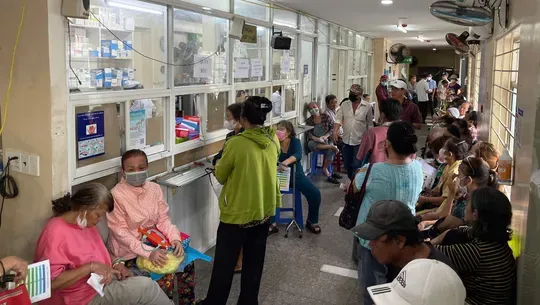The integration of electronic prescription systems into their Hospital Information Systems strictly complies with the Ministry of Health's Circular No. 26/2025/TT-BYT on the prescription of chemical drugs and biological products for outpatient treatment.

According to Associate Professor Tang Chi Thuong, Director of the Ho Chi Minh City Department of Health, healthcare facilities have standardized prescription forms, strictly controlled the prescribing of addictive and psychotropic drugs, while also ensuring that only one prescription is issued per medical examination and adhering to the correct usage period.
Notably, a new regulation allowing patients with chronic illnesses to receive prescriptions for up to 90 days if their condition is stable has also been implemented across the board. This policy not only reduces the number of follow-up visits and saves patients' costs but also makes it easier for the elderly, people with disabilities, and residents in remote areas to maintain continuous treatment according to prescribed regimens; thereby easing the burden on large hospitals.
The Ho Chi Minh City Department of Health has coordinated with hospitals, the city's Social Insurance Agency, and relevant units to closely monitor the implementation, ensuring professional effectiveness, patient safety, and compliance with health insurance payment regulations. It has also mandated that all hospitals complete the transition to electronic prescriptions by October 1, 2025, and all other medical facilities by January 1, 2026.
Additionally, medical facilities are required to conduct training and outreach to help the public understand that long-term prescriptions are a policy supporting continuous care—not arbitrary medication distribution—so as to avoid unnecessary follow-up visits and help reduce hospital overcrowding.
























